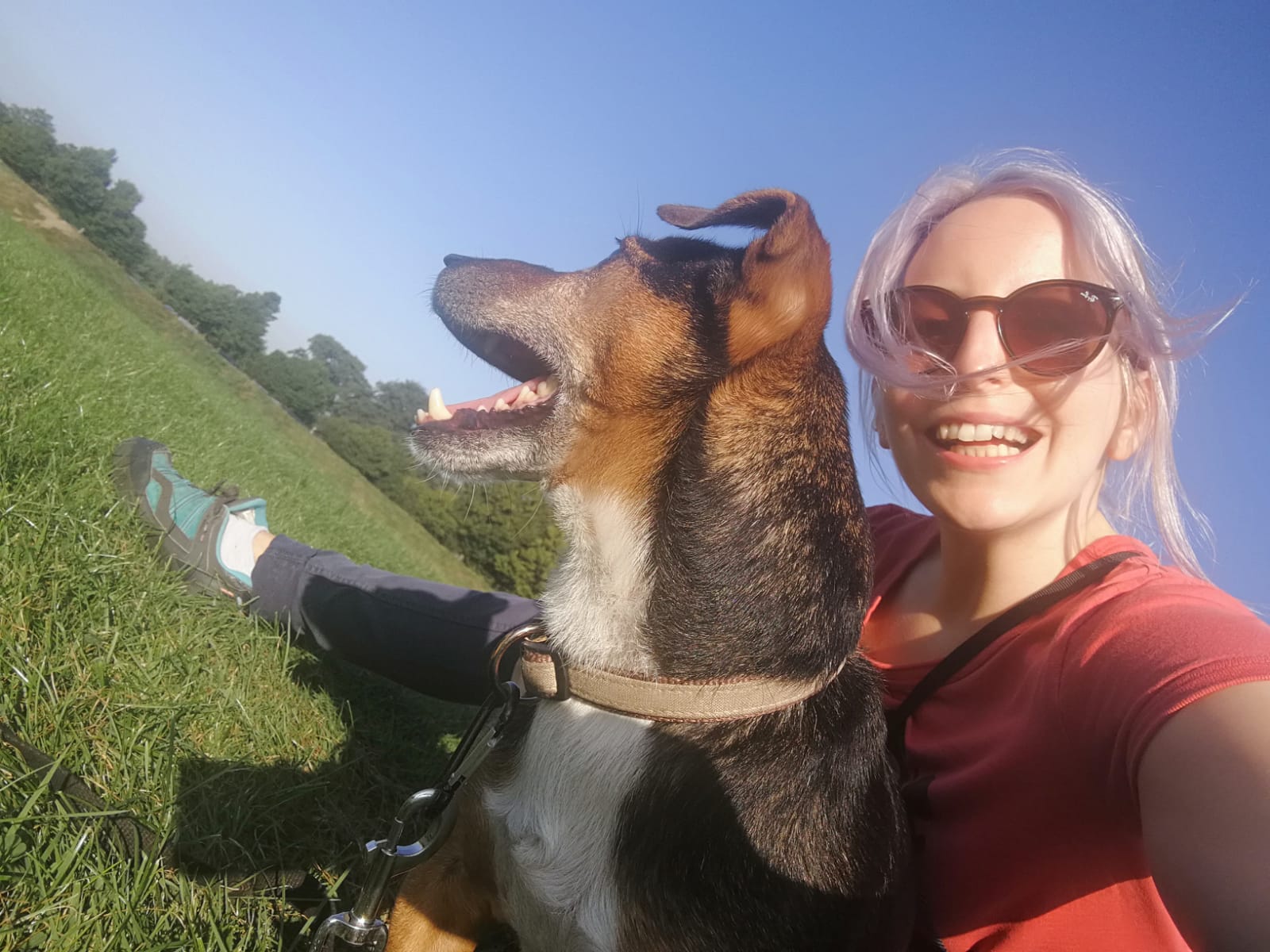I was just randomly checking out what Funerals costs and was shocked how expensive it was! €3.500 to €5.500! I live in north Germany, and we have here some very deep Woods. So I was thinking what would happen if I just die there. Let’s say no one ever finds me. Are Animals just going to eat me, and will I just be gone in a couple of years?
EDIT: If someone knows what happens step by step I would be really curious to know :D
Plot twist: OP has a body to dispose but not their own.
Funeral homes don’t want you to know this one weird trick!
Disclainer : But it’s really weird
There’s a good article you can read that explains the process of decomposition and the influence of external factors:
https://www.theguardian.com/science/neurophilosophy/2015/may/05/life-after-death
Beware of gruesome details, avoid this one if you’re sensitive to this topic :)
Your body is very likely going to be found by dogs from hunters even in the deepest of woods (in Europe).
Short answer is Yes, animals will eat you and your corpse will be reduced to bones in some time. How much time depends on several factors, such as which animals find you or not and the temperature, humidity and sunlight the body is exposed to.
I don’t think Germany has any woods where you can really disappear, most woods have enough hikers to hit almost every spot in a couple of weeks. The woods are too small and the amount of people enjoying them is too high.
You can also insure yourself to cover the funeral costs. I pay something like 50 euro per year and all funeral costs are 100% covered for the people I leave behind.
I’m imagining what happens is they organize a giant search party to look for you (this is not the good kind of giant party) Eventually they find your corpse and put it in a refrigerator for a long time while your relatives argue with the police about whether you were kidnapped and murdered. Somebody pays for all this, maybe the tax payers, maybe your relatives, I don’t know. Then after all that you finally get to have your expensive funeral but on top of being sad, everybody is frustrated.
I’m thinking, better all around if you just don’t die quite yet because that shit is just awkward.
Gluck auf!
I love the sentiment: “just don’t die because it’s awkward AF”. If “joie de vivre” doesn’t make you cling to life, there’s always social anxiety even after death 🤣
What if I yeet myself into a volcano and leave a note explaining?
What happens if I commit suicide by fire? And maybe with a fan to blow away the ashes?
Basically what if there is no body?
Isn’t self immolation fairly agonising? I always assumed fire is the worst way to go.
Well if you really assume your body won’t be found you just decompose like any animal. Just open youtube. There are enough timelaps videos about this topic. The last few remaining things are your bones and hair. Hair just decomposes badly, bones will last even longer. Ah and any plastic and metal you are carring around of course. Clothes, and jewelry or implants like silicon boobs and hip joints.
There’s a joke in there about grannys with boob jobs, but I’m not yet depraved enough to try and find it.
Animals die in the woods aswell but how often do you find their corpses there? You’d be gone in no time.
If it’s premeditated, you get resurrected and fined.
You’ll start to decay, flies and maggots will infest you. When the smell reaches animals, they’ll eat the meat. During that process the bones will get scattered. Insects will pick the bones clean and anything organic left (the bone fragments themselves) will eventually break down.
I’m aware that bodies will be eaten up, but I have to say, I have absolutely zero intuition, how long it will take.
Germany doesn’t have many wild animals left, so only foxes, birds, maybe badgers and rats are left to eat larger chunks. They’ll not exactly eat you in one go.
So, how long are we talking from body to bones? Weeks? Months?
Don’t think it’d even take weeks. It wouldn’t be just be a couple of foxes or badgers, it’d be all of them for miles around. Scent travels a long way. Then on top of the larger (by European standards) animals, lots of birds eat carrion.
You’re spot on!
Your choice of words made me think though:
Isn’t the dead body the one ingesting the forrest and the native maggots and flies just clean up?
Are we giving a murderer advice on how to dispose of a body?
No this is sound financial advice for anyone under 30.
If so, it’s bad advice. Walking into the forest and becoming dead leaves pretty much all the evidence
Like it’s not hard to find cause of death when a skull is found in the remains of an exit bag
Found a paper about scavengers in Europe and the team doing the study apparently did the work in Germany, so:
We found several influences having impact on the de- composition and consumption of carcasses:
• Season: In summer, carcasses are mainly con- sumed by arthropods and bacteria. Only Red Fox (Vulpes vulpes) is regularly eating from rotting carcasses, while in winter consumption is done mainly by vertebrates. Wild Boar (Sus scrofa), Wolf (Canis lupus), Pine Marten (Martes martes), Domestic Cat (Felis catus) and Raccoon Dog (Nyctereutes procyonoides) used carcasses only in winter, especially after snowfall. In winter there are large flocks of Raven (Corvus corax) at the carcass, in summer only the resident couple.
• Condition of carcass: It makes a significant dif- ference if the road kill shows open wounds or if the animal died of inside injuries. With no open wounds even White Tailed Eagle (Haliaeetus al- bicilla) with its strong beak has difficulties in opening a carcass, and trying to open it is time consuming. In combination with the season, the carcass starts rotting fast in summer and will not be used by most vertebrates. We have evidence for just one case when Ravens Corvus corax) were able to open the softer skin of a Wild Boar’s (Sus scrofa) belly and feed on the intes- tines.
• Age of scavenger: While adult Red Foxes (Vulpes vulpes) will eat of any carcass, the pup- pies are mainly feeding on the large insects near and on the carcasses.
• Feeding strategy: Ravens (Corvus corax) do not actually feed at the carcass. They fill their craw with meat, hide it away and come back for more meat. As we often find more than 20 Ravens (Corvus corax) at the same carcass, consumption rate can be accelerated much by Ravens (Corvus corax).
• Competition: Interspecific and intraspecific competition is more complicated than expected. Although adult White Tailed Eagles (Haliaeetus albicilla) dominate young ones at the carcasses, in groups of Raven (Corvus corax) there will be one to mob any eagle by pulling their feathers on the wings or tail. This strategy fails when used on Buzzards (Buteo buteo) as the Buzzard (Bu- teo buteo) will strike back and single Ravens get mobbed themselves by Red Kites (Milvus milvus) stealing the Raven’s meat stored in a hideaway. Competition between vertebrates and bacteria is also remarkable; it seems to follow “first come, first served”
Citation:
Scavenging Birds and Ecosystem Services Experience from Germany
Xiaoying Gu, Rene Krawczynski
Does it really matter. What’s a corpse to a dead man!
edit: fix format of quote
Quick search:
The 5 Stages of human decomposition:
- 1: Autolysis
- 2: Bloat
- 3: Active Decay
- 4: Advanced Decay
- 5: Skeletonization
FYI it is graphic, not too much but be warned
How does a human body decompose? | Body Farm Forensics [2:22 | May 19 2021 | Death Science]













